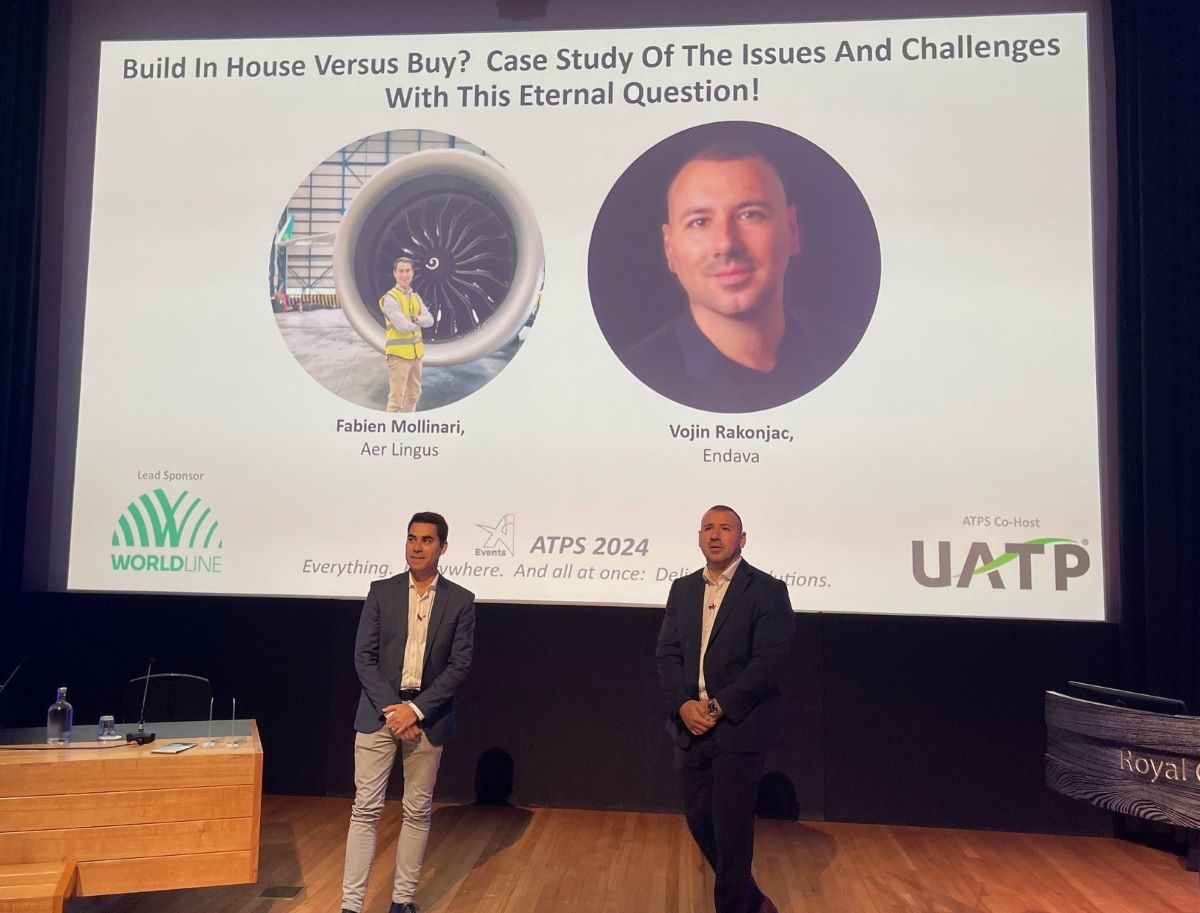Airlines could see a $14 billion annual boost to revenues if they develop inhouse payments expertise so they can offer customer their preferred transaction method.
Vojin Rakonjac, vice president of travel at Endava, said each airline has to decide what the best strategy is for it and that not every airline has the perfect answer.
He cited a study by McKinsey that found airlines spend 3% of the sector’s total annual revenue, an estimated $20 billion, processing payments.
“There is a huge impact on margin,” he said claiming the industry could save up to $14 billion.
“Why aren’t all airlines capitalising on this? It turns out there are certain challenges. The first one is 73% say they can’t innovate because their systems are way too complex.
“This makes sense because companies have evolved over decades and built different systems on their PSSs [Passenger Service Systems].”
Fabien Mollinari, Aer Lingus payment product manager, said the airline is “very progressive” and it knew that “owning our own infrastructure was key not only from a cost perspective but from a customer experience perspective”.
He said over the years new systems had been “bolted on” to its PSS which made it very challenging to introduce major changes.
Rakonjac said when systems require so much resource to change it is very difficult to make a business case even for the most simple of integrations.
“If you need to implement Apple Pay, do you really know how much ROI [Return On Investment] you will get?”
Mollinari said Aer Lingus had in the past tried to adopt Apple Pay twice and failed because of how costly it was to do in the old system.
Rakonjac said it was imperative the airline succeeded on the third attempt and had to convince a number of internal stakeholders, in particularly the person responsible for payment security.
“It was not an easy one to convince,” said Mollinari, “he was keen that the solution we introduced had to be safer than the old system.”
He added that achieving cost savings was important but just as key was the customer experience and providing a seamless experience on the airline’s website.
Rakonjac said payments is “more than just capturing data”, they are important for capturing market share and taking the friction out of being a customer for what are global businesses.
The digital payments revolution pioneered by PayPal and followed by Google, Apple and Amazon has not only improved the customer experience and satisfaction but improved security.
The Aer Lingus adoption of Apple Pay was hailed as a “real commercial success”. Mollinari said: “It’s all about consumers. Different consumers have different expectations.
“It’s very important to offer the same type of experience to our customers that they are used to elsewhere. To grow customer acquisition you have to offer relevant forms of payment, it also allows us to make better commercial decisions about forms of payment.”
Airlines that aren’t offering multiple payments types are “essentially robbing” their customers of the benefits that those forms of payment provide to their users, like cash back offers or flexible payments, and the consumer will go somewhere else, warned Rakonjac.

